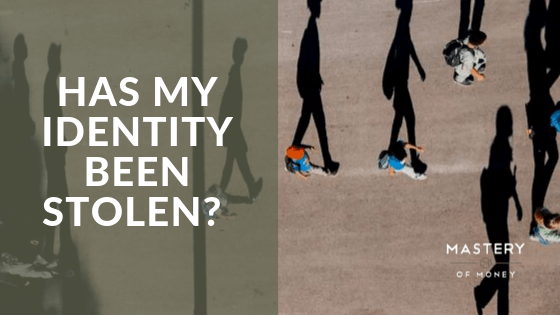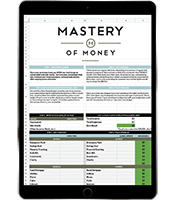If you’ve ever wondered if your identity has been stolen, the answer is a resounding YES. The bigger question is whether or not it’s being used for nefarious purposes. Has My Identity Been Stolen?
In this article you’ll learn why the chances of your information floating around on the dark web are high, what is typically done with the data, and how to keep yourself safe. (Or moderately safer…)
To prove the likelihood of your personal details having been hacked already, in 2018 there were six breaches of websites holding confidential information where over 100M people were affected. They ranged in size from 100 million to 1.1B (according to Dashlane) – meaning just the top 6 breaches jeopardized the personal information of 2.5 BILLION PEOPLE.
So, yeah. You’re probably one of them unless you’ve lived off the grid for the past 10 years. Because of the 7.5 Billion inhabitants of planet earth, 1 in 3 had their personal information hacked in 2018. Your odds get even better in 2019!
The data breaches that happened in 2018 are a mere fraction of what’s been nabbed in 2019. According to a Forbes article, over 4.1 BILLION records were breached in the first six months of 2019. Which means 1 out of every 2 people in the world have likely had their data pulled out of a data breach.
There are only two kinds of people: those who’ve had their data stolen, and those that don’t know they’ve had their data stolen.
There is a common saying among data security experts that there are two kinds of companies — those that have been hacked and those that don’t know they’ve been hacked. The same can be said about consumers who are all too willing to share personal information on sites that are no doubt targets of hacks, or have malicious code already embedded on their sites.
If you’re concerned about your personal data security, it might help to know if you’ve used any of the following sites in the past 24 months:
- Marriott
- Under Armour
- Quora
- Google+
- Chegg
- Panera
- TicketFly
- TimeHop
- Saks and Lord&Taylor
- Orbitz
- T-Mobile
- British Airways
- Luscious
- *Virtually ANY Smart Home Device*
The list of hacked sites would be pages long, and you’d no doubt find your local grocery chain, a clothing retailer, hotel brand, or online shopping site that you’ve frequented over the course of the last year. In fact, if you’ve received a new credit or debit card in the mail that you didn’t personally request, you were the victim of compromised data.
What If My Identity Is Stolen? How Will I Know?
There are a myriad of things that hackers are potentially going to do with your precious data. They range from really bad for you to not that bad for you, but still a nuisance. Here they are:
- They’re stealing information to prove that it can be stolen. There are a number of hacker groups that are just validating that even the most architected security systems can be broken into. They’ll likely request money from the parties that it’s stolen from, or just get negative press on the particular company or site. (Definitely a nuisance. You may or may not know about the data breach, and you’ll have to reset passwords and maybe get a new card.)
- They’re selling your personal information on the dark web. The dark web consists of encrypted online content that isn’t accessed through normal internet searches. Criminals will often sell batches of personal data on the dark web that can be used for various scams from extortion to identity theft. There is undoubtedly some of your information on the dark web already, more than likely email addresses and passwords from various sites. (Kinda bad for you. The lion’s share of these show up as extortion emails — i.e. send $5,000 in bitcoin to us or we’ll expose your dirty little secrets. Just make sure you don’t take the bait. They’ll say they have your email and password, they’ve taken over your webcam and have recorded content you wouldn’t want released.)
- They’re using your personal information to create accounts tied to you. Though you don’t hear about this often, there are instances of people getting credit accounts opened up in their name and social security number and never knowing about it. (Bad for you. Once an account is opened and a balance on the account accrues, if payments are stopped or never happen, your credit report and score will be hurt by this. It’s best to know what’s on your credit report regularly.)
- They’re attempting charges on your credit or debit cards. You’ll experience this when charges begin appearing in a state or country other than your own, completely out of the blue. What’s likely happened is your card information was sold on the dark web and someone began attempting using that information to make purchases. If your credit card provider has a fraud notification service, make sure you’re enrolled. This will help alleviate the challenges that occur when unauthorized charges happen. (Kinda bad for you/a nuisance. What will happen is your credit card provider will cancel that card number and issue you a new card. It’s inconvenient, to be sure, but the charges will usually be forgiven by the card issuer.)
How Do I Keep My Identity Safe?
The easiest way to make sure no one steals your identity is to live a life completely off the web, sharing no details of your financial or personal existence with anyone. It’s flat out not gonna happen. The pervasive use of your information online means you’re exposed ALL the time.
At best, you’ll want to keep your private data as private as possible. Meaning, don’t share the “good stuff” with any site that may have vulnerabilities (ahem… most all of them.) Short of that, here are some of the ways to make sure you’re protected:
- Use different passwords on all accounts.
- Consider using two-step authentication (like Google Authenticator) when logging into sites with personal data.
- Regularly check your credit report to identify anything that seems out of the ordinary.
- Sign up for fraud protection with your bank, credit union, and all credit card providers.
- Register for a service like LifeLock to be notified when your information appears on the dark web.
We’ve crossed the threshold into a time when our data is being shared rampantly across platforms, when service providers like Facebook are collecting every bit of data they can, and we as consumers are more willing than ever to share ad nauseum online.
Services like Lifelock provide at least some protection by alerting you to dark web activity, and the ability to monitor your credit score and potential misinformation being provided to the credit bureaus. While there is an investment to Lifelock, the cost to you personally of data being used maliciously against you is even higher. Consider the investment just another insurance policy, a hazard of being open and online as much as we are today.
To make sure we’re safe, ultimately we need to be informed. The likelihood of your data already being stolen, sold, and used is high. So to remain in control, we must have services in place that notify us when information is detected and be vigilant about protecting that data and/or knowing the risks of it being out there.




